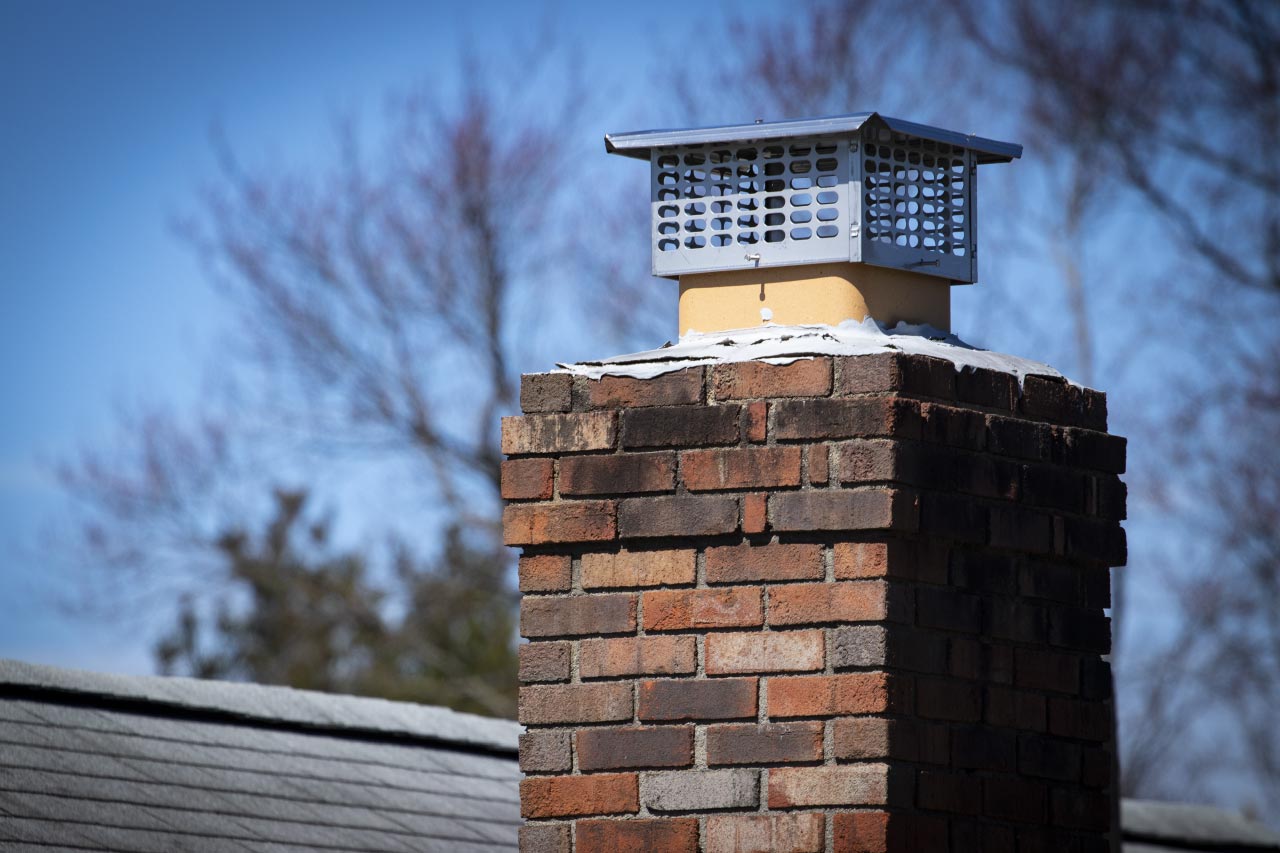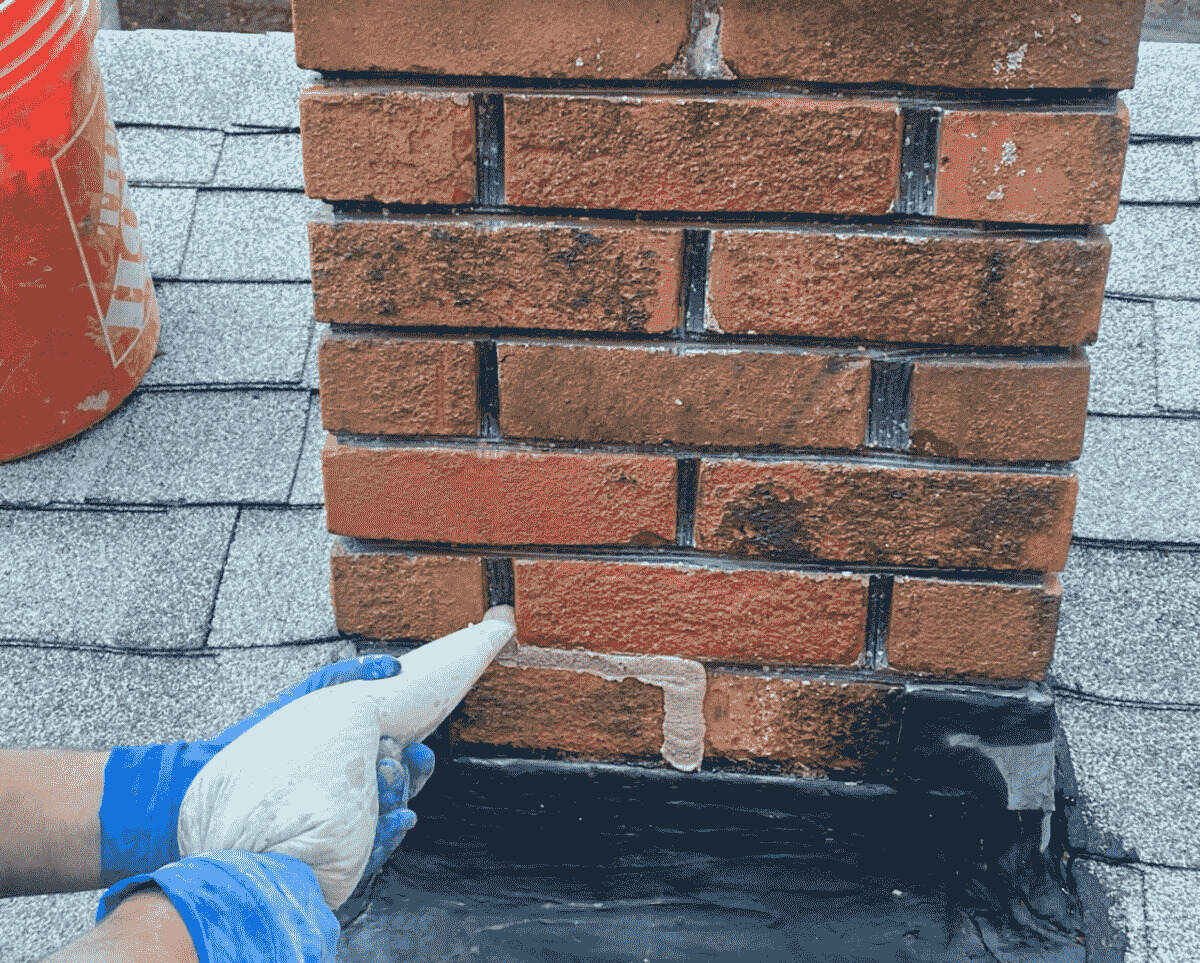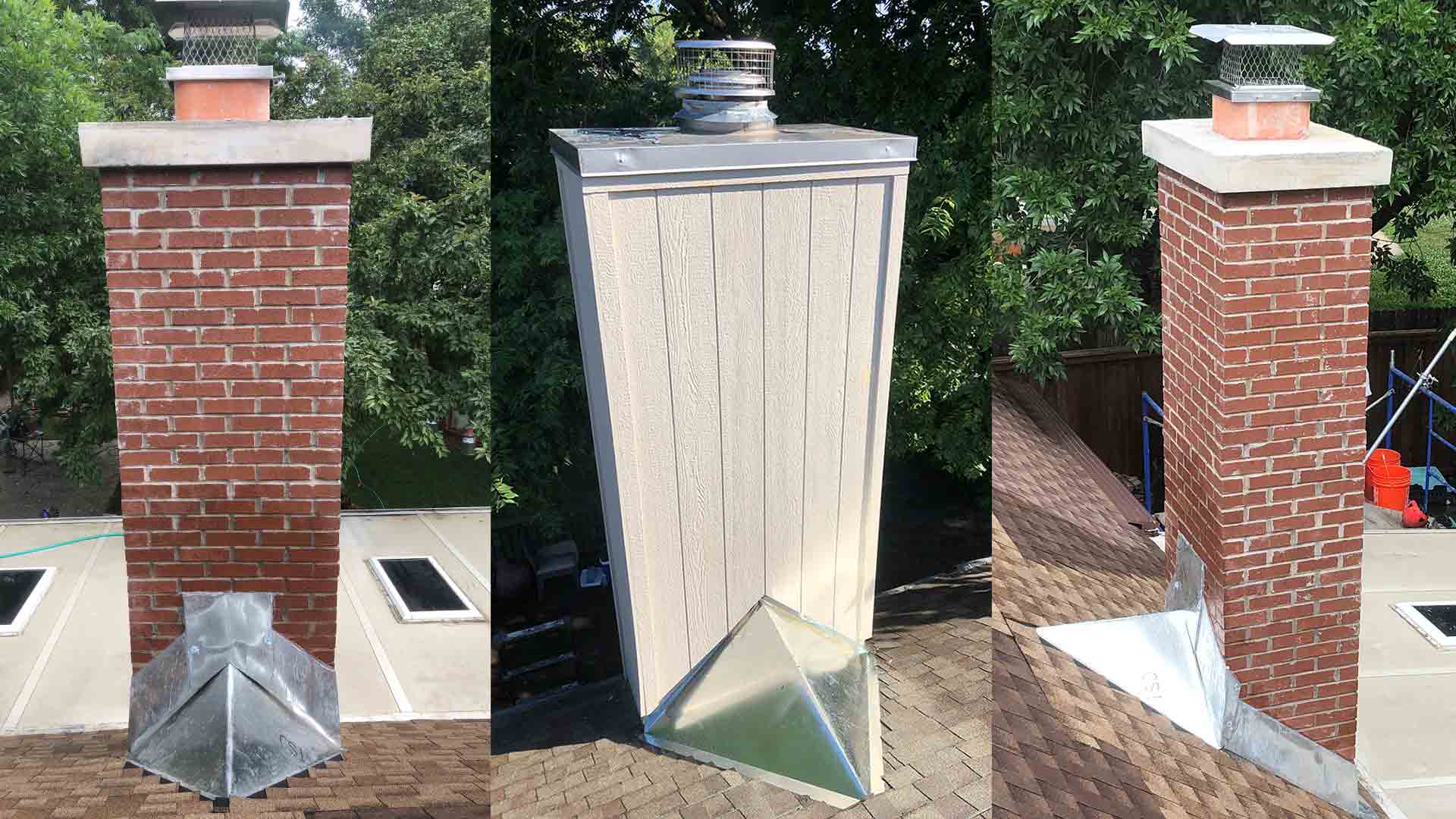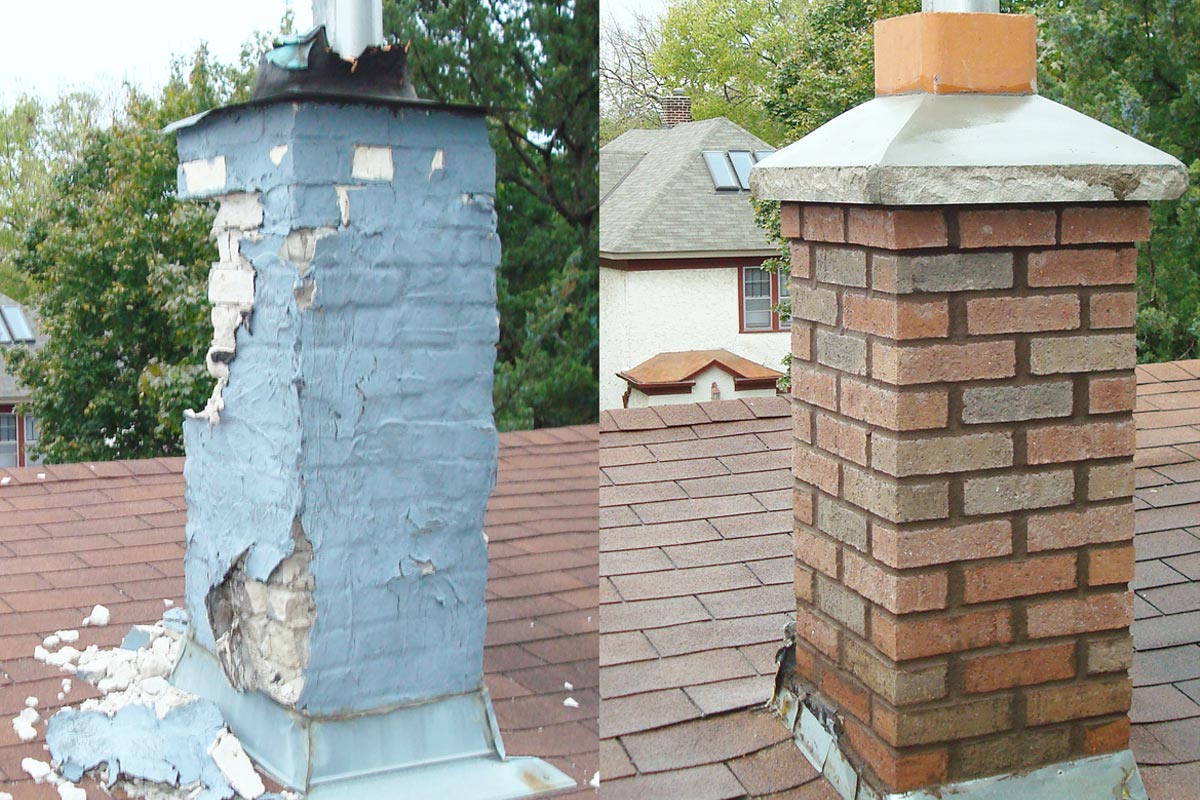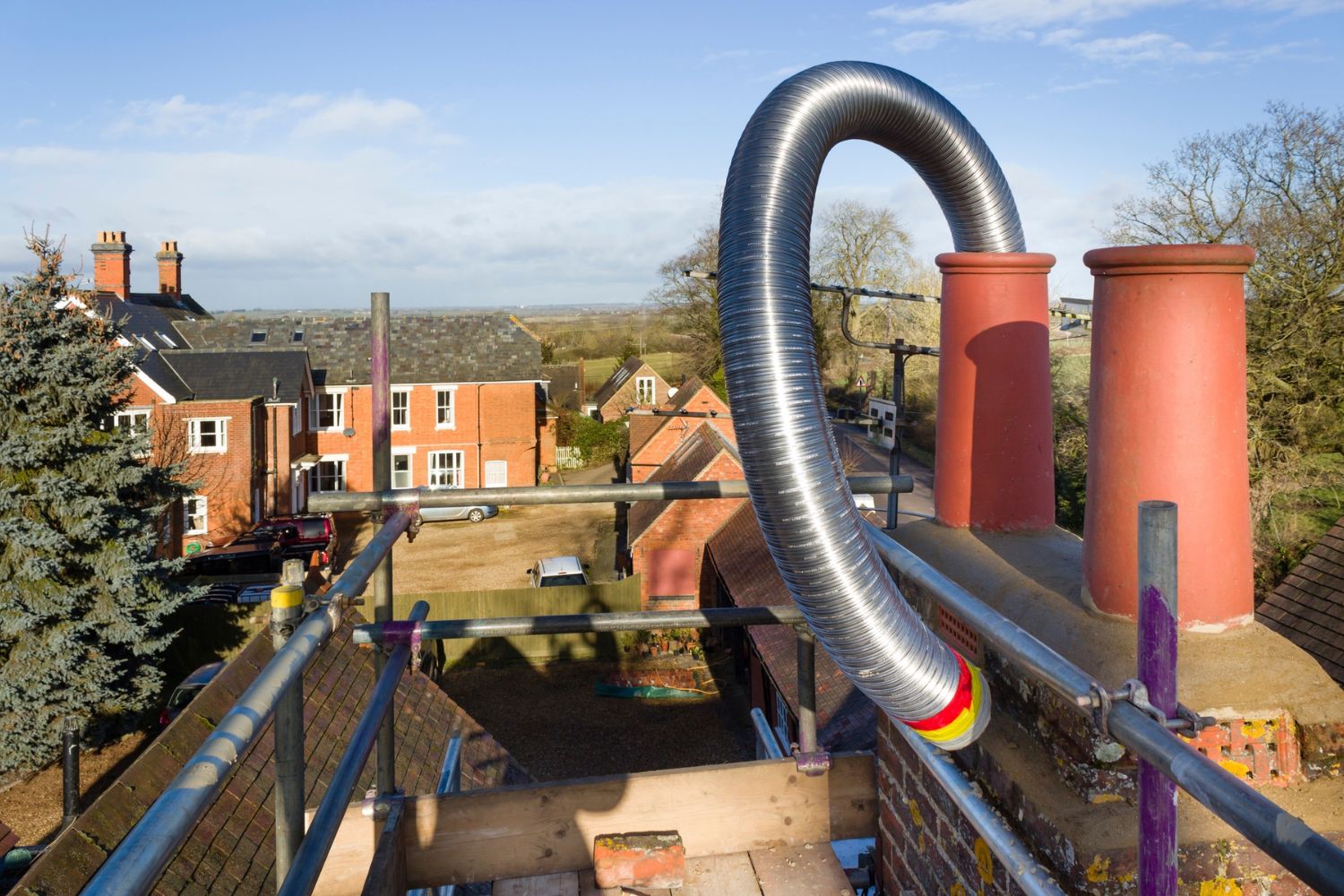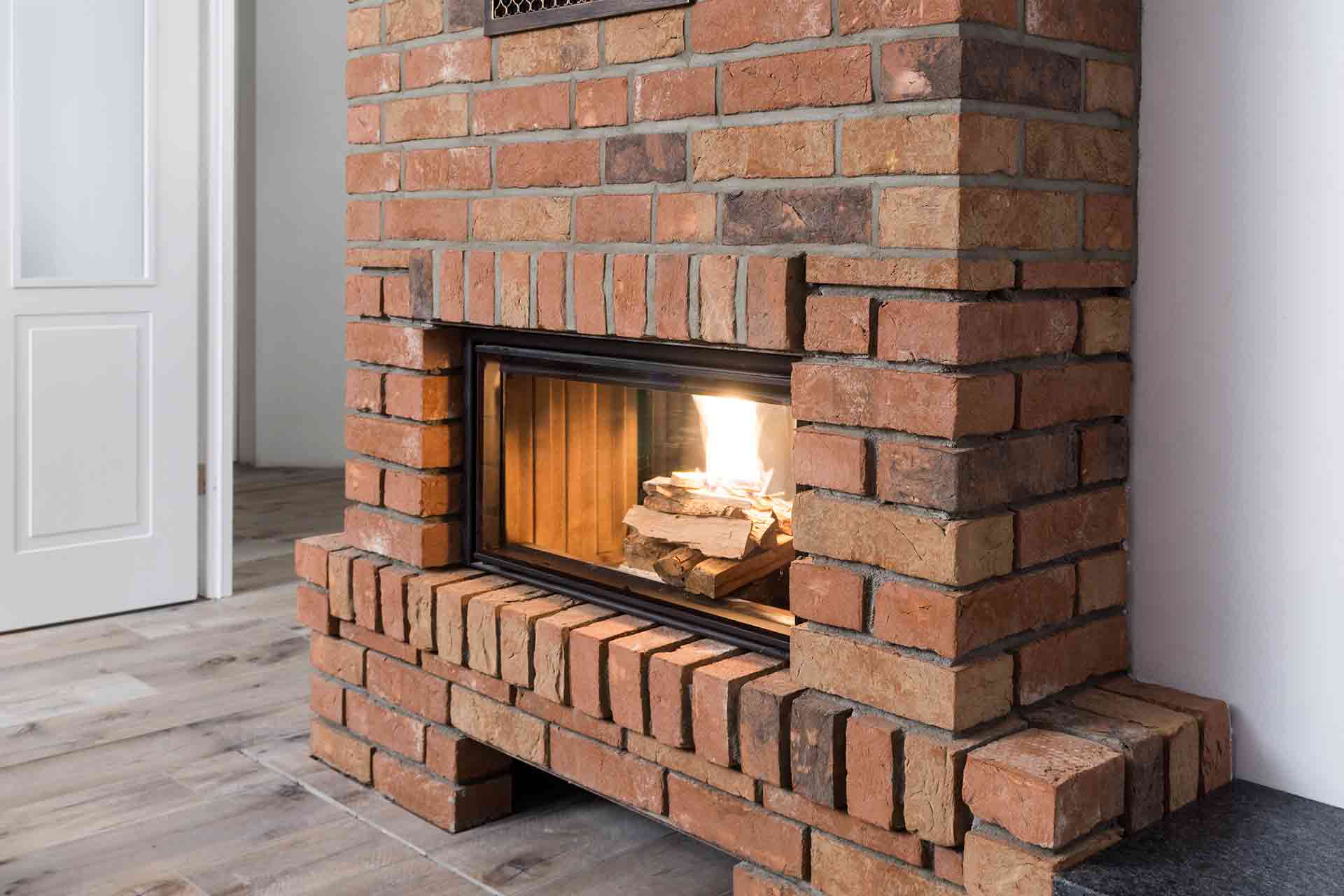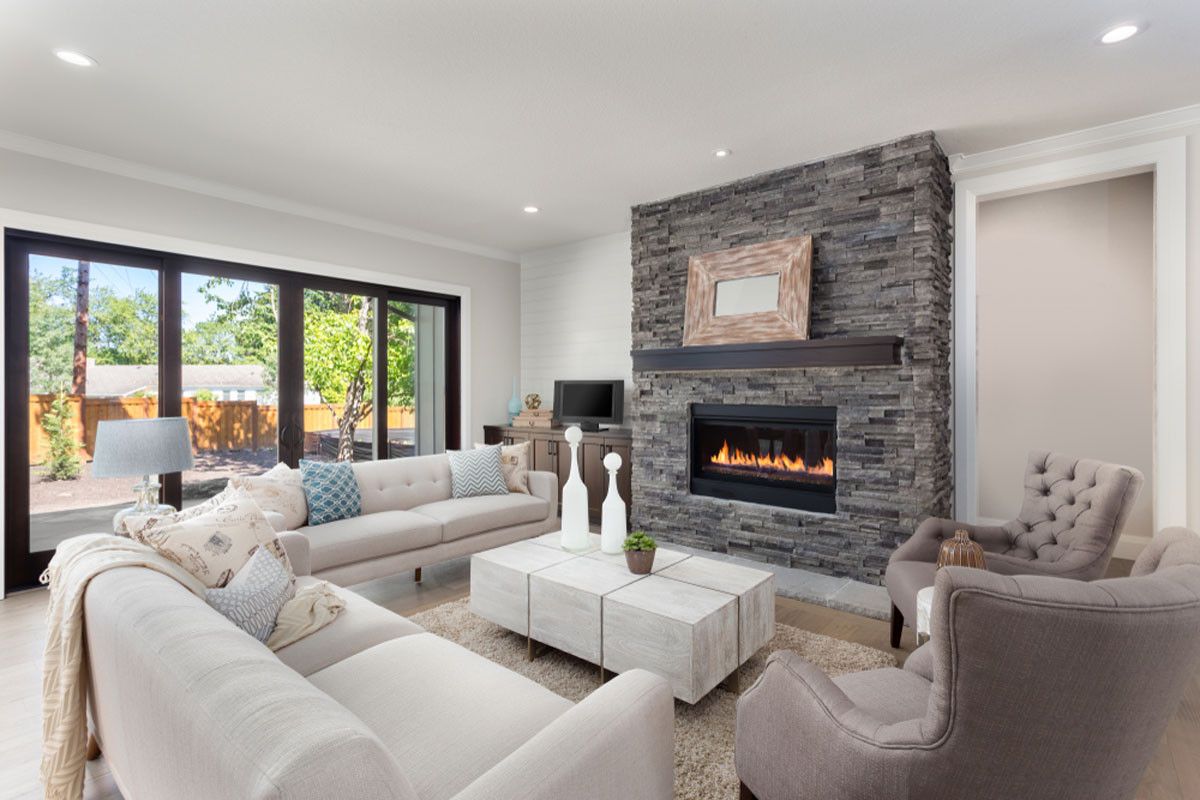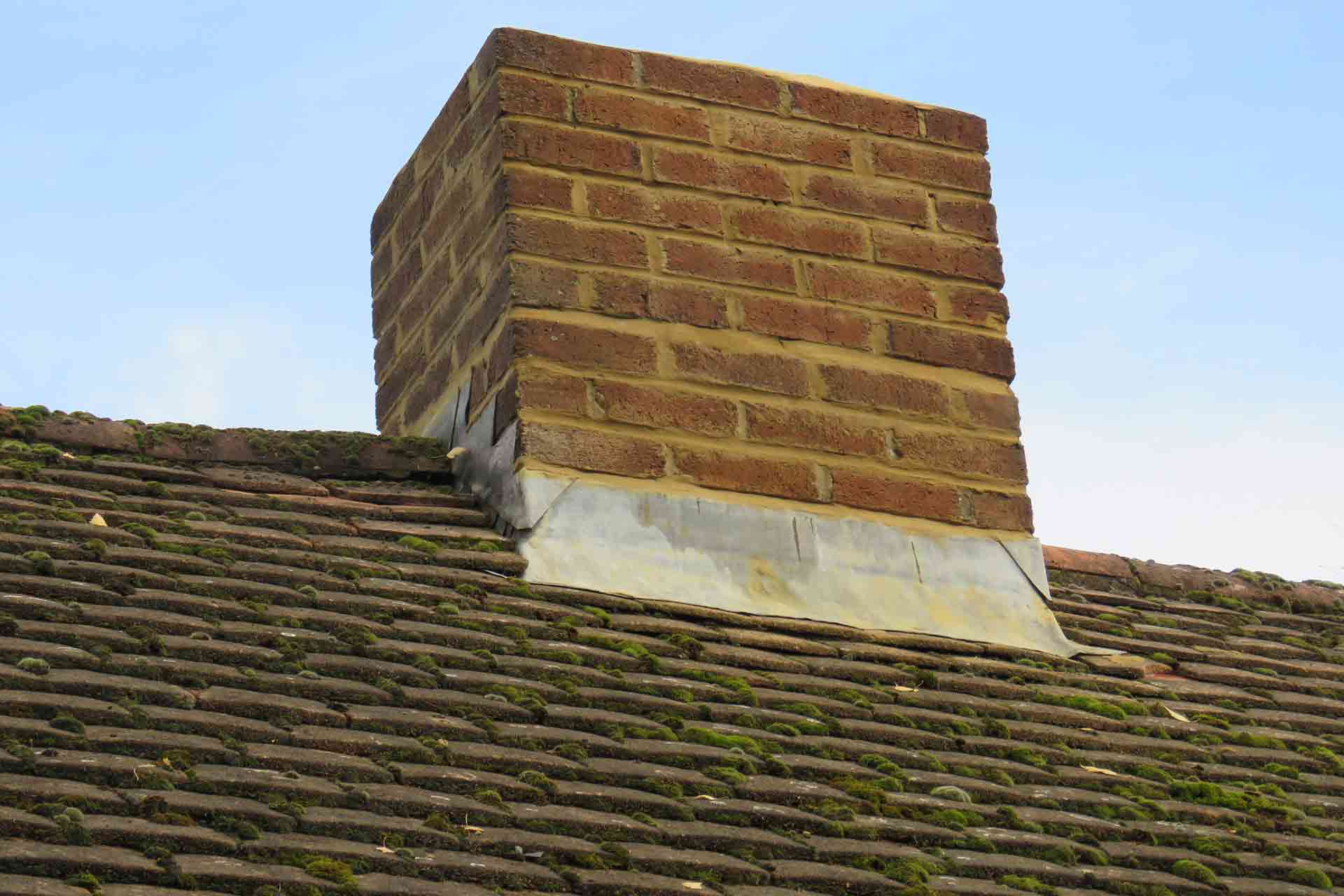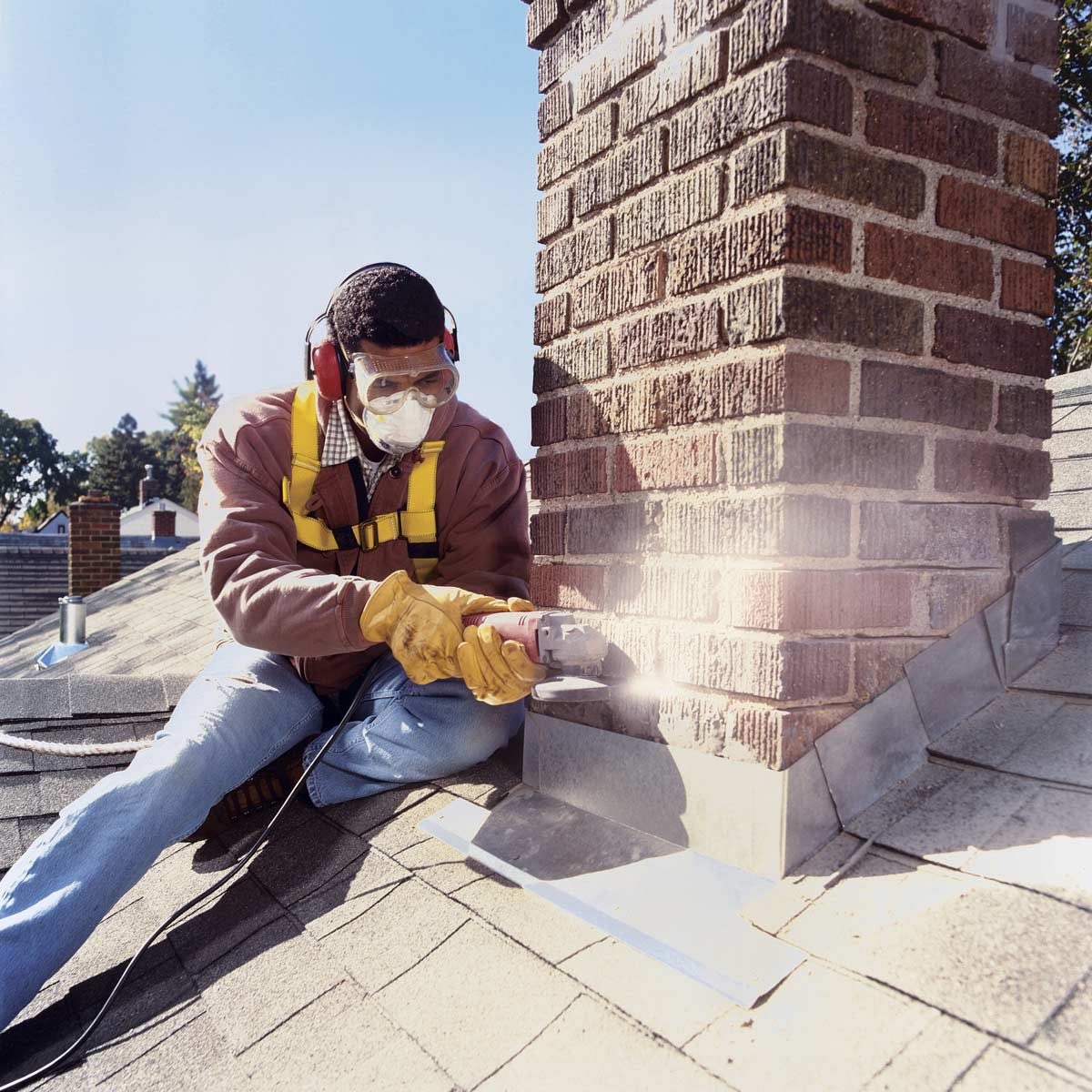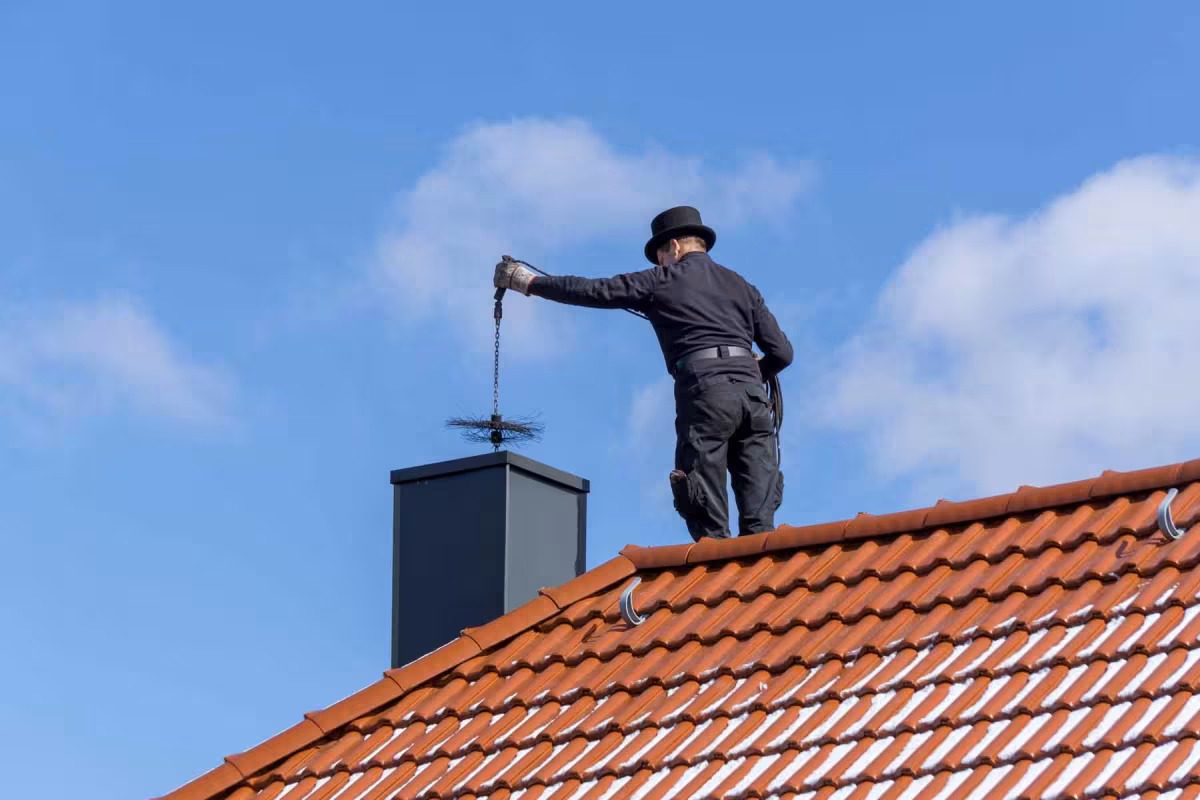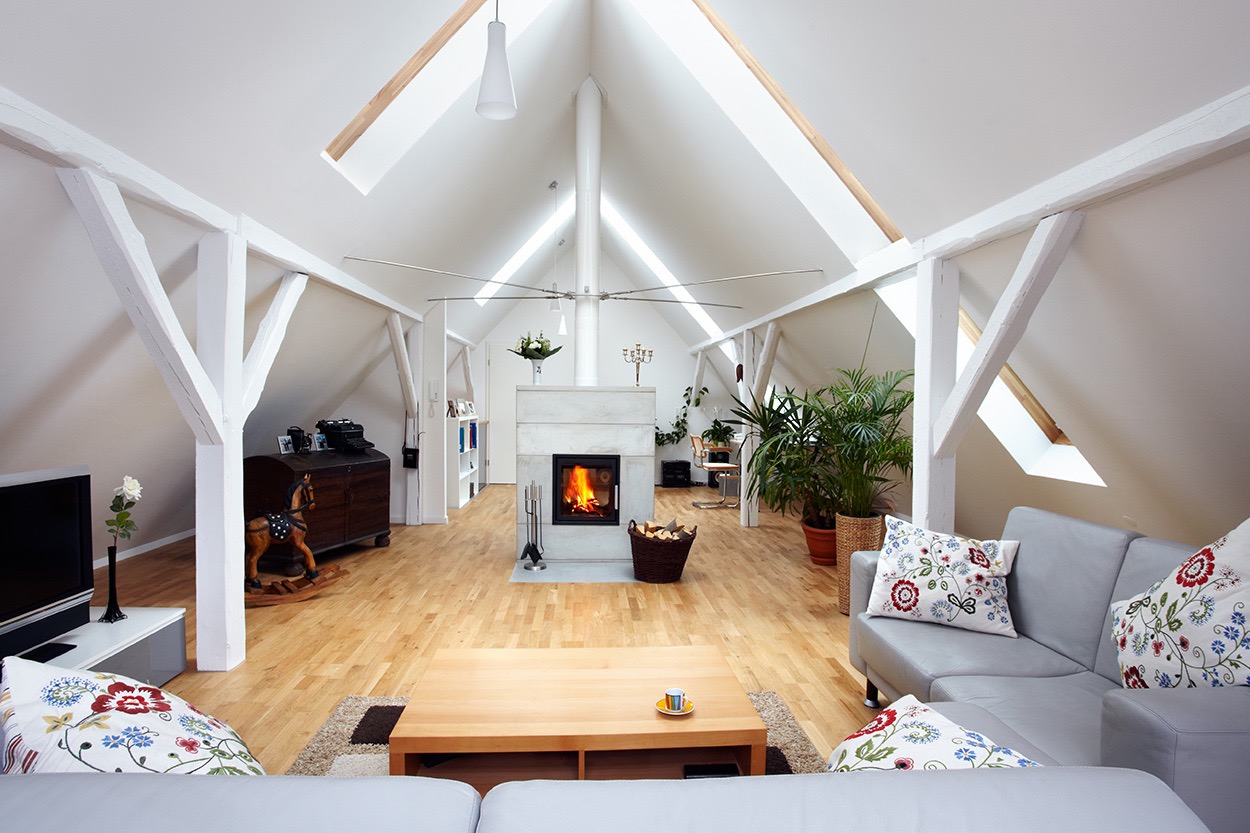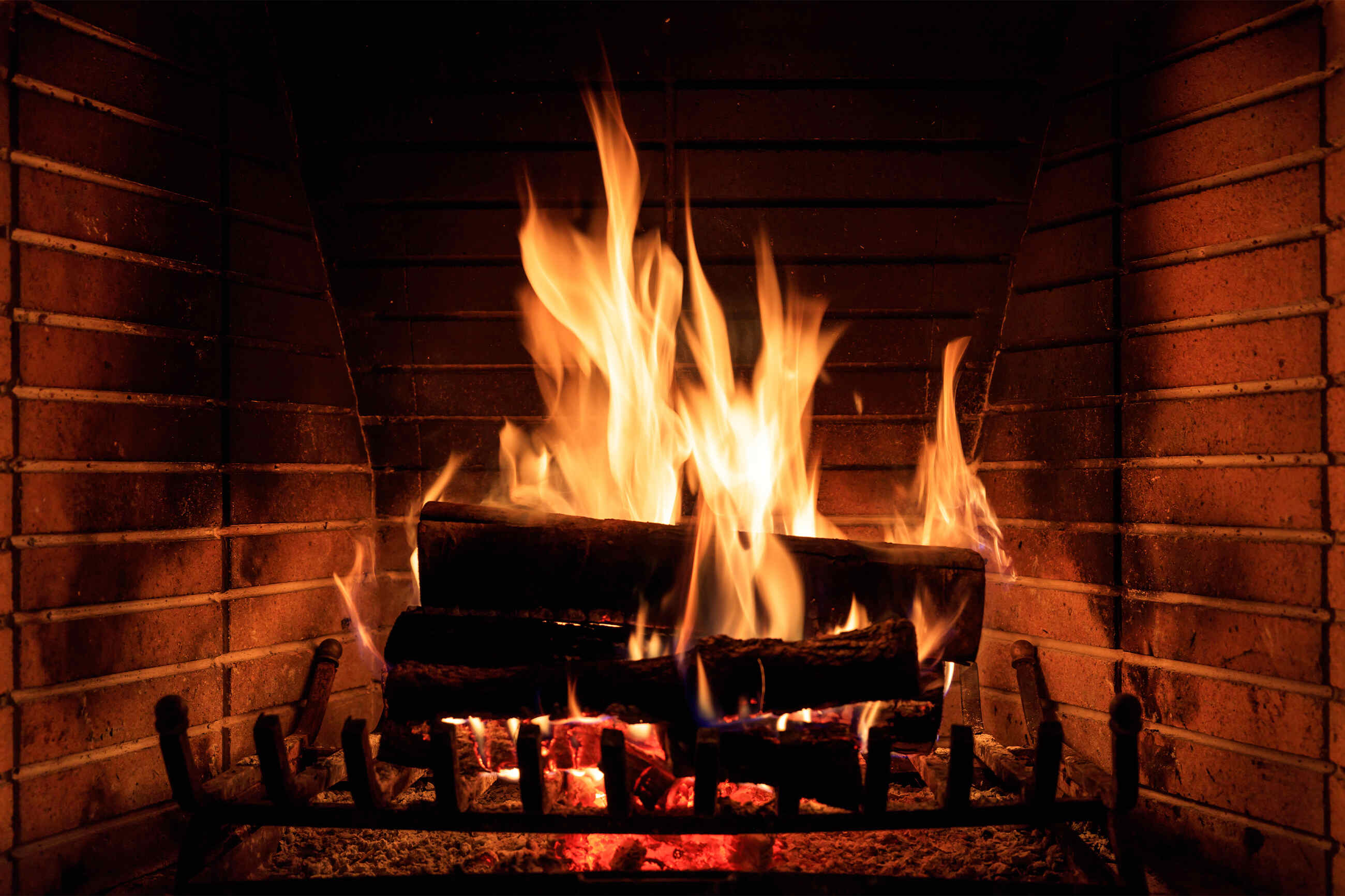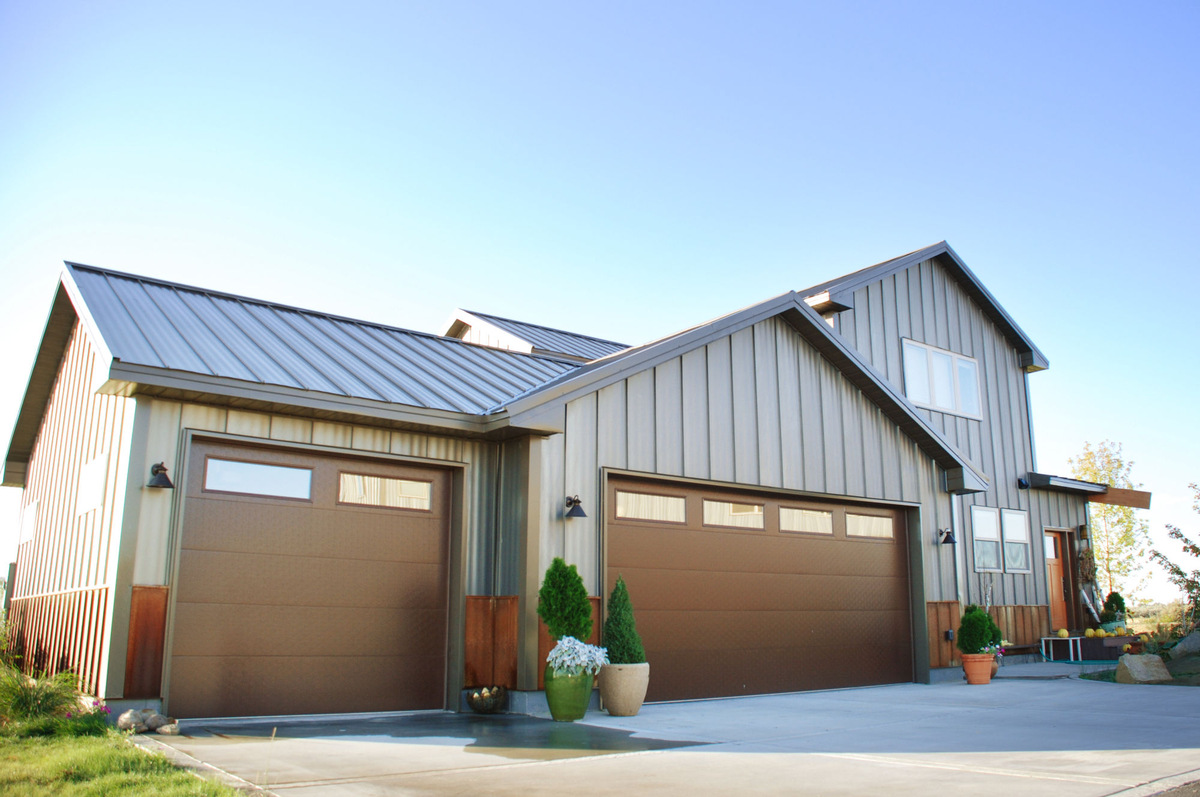Home>Home Maintenance>How Much Does Chimney Repair Cost
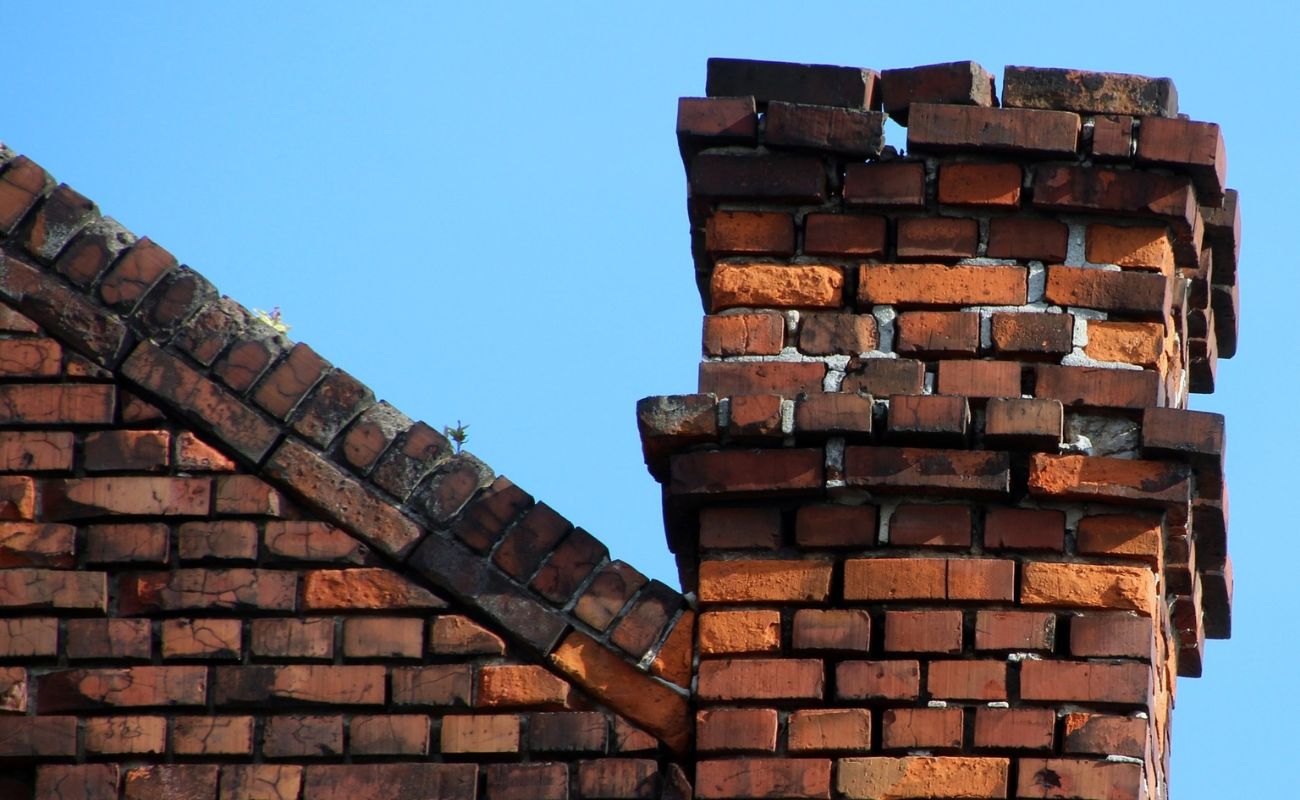

Home Maintenance
How Much Does Chimney Repair Cost
Modified: August 22, 2024
Get an estimate for chimney repair cost for your home maintenance. Find out the average prices and factors that can affect expenses.
(Many of the links in this article redirect to a specific reviewed product. Your purchase of these products through affiliate links helps to generate commission for Storables.com, at no extra cost. Learn more)
Introduction
Having a well-maintained chimney is essential for the safety and functionality of your home. Over time, chimneys can deteriorate due to various factors such as weather exposure, usage, and lack of regular maintenance. When these issues arise, it’s important to address them promptly to avoid further damage and potentially costly repairs.
In this article, we will explore the factors that can affect chimney repair costs and discuss the common chimney repair issues homeowners often encounter. We will also provide insight into the costs associated with chimney inspection, cleaning, and the repair or replacement of various chimney components such as the cap, crown, flue liner, masonry, and flashing. Additionally, we will consider the option of DIY chimney repair versus hiring a professional.
Whether you are a new homeowner or have owned your property for years, understanding the costs involved in chimney repair can help you budget effectively and make informed decisions about the necessary maintenance and repairs required for your chimney system. So, let’s dive in and explore the world of chimney repair costs!
Key Takeaways:
- Proper chimney maintenance is crucial for safety and functionality. Understanding repair costs and considering professional help can ensure long-term chimney efficiency and safety.
- Factors like damage severity, materials used, and labor costs influence repair expenses. Regular inspections and prompt repairs can prevent costly future damages and ensure chimney longevity.
Read more: How Much Does Chimney Inspection Cost
Factors Affecting Chimney Repair Costs
When it comes to chimney repair costs, several factors come into play. Understanding these factors can give you a better idea of why prices can vary significantly depending on your specific situation. Here are some key factors that can affect chimney repair costs:
- Severity of the Damage: The extent of the damage to your chimney will play a significant role in determining the repair costs. Minor issues like small cracks or a loose cap may require simple repairs that won’t break the bank. However, more extensive damage such as a damaged flue liner or crumbling masonry can lead to higher repair costs.
- Chimney Height and Accessibility: The height and accessibility of your chimney can impact the cost of repairs. If your chimney is difficult to access, such as being located on a high roof or surrounded by obstacles, it may require additional equipment or labor to complete the repairs, which can increase the overall cost.
- Materials Used: The materials used for chimney repairs can also affect the cost. For example, repairing a chimney crown with high-quality materials may cost more upfront, but it can lead to longer-lasting results and potentially save you money in the long run.
- Local Labor Costs: Labor costs can vary depending on your location. Areas with higher labor costs may have higher repair prices compared to areas with lower labor costs.
- Seasonal Demand: Chimney repair services may have higher demand during certain seasons, such as the fall and winter when homeowners start using their fireplaces more frequently. During these peak times, repair costs may be higher due to increased demand for services.
It’s important to note that these factors can vary from situation to situation, and it’s always best to consult with a professional chimney technician to assess your specific requirements and provide an accurate cost estimate.
By understanding the factors that influence chimney repair costs, you can better prepare yourself financially and make informed decisions about the maintenance and repairs needed for your chimney. Next, we’ll dive into some of the common issues that may require chimney repair.
Common Chimney Repair Issues
Chimneys are exposed to various elements and can experience wear and tear over time. Here are some common chimney repair issues that homeowners often encounter:
- Cracked or Damaged Chimney Crown: The chimney crown is the top part of the chimney that protects it from water intrusion. Cracks or damage to the chimney crown can lead to water penetration, which can cause further deterioration of the chimney structure.
- Deterioration of Chimney Flue Liner: The flue liner is a critical component of the chimney that helps channel smoke and gases out of your home. Over time, the flue liner can deteriorate due to exposure to high temperatures and corrosive byproducts. Cracked or damaged flue liners can compromise the safety and efficiency of your chimney.
- Masonry Damage: Chimney masonry can deteriorate due to weather exposure, freeze-thaw cycles, and age. Crumbling bricks, mortar joints, or a leaning chimney are common masonry issues that can negatively impact the structural integrity of the chimney.
- Chimney Cap Issues: The chimney cap serves as a protective cover for the chimney opening, preventing debris, animals, and water from entering the chimney. Damaged or missing chimney caps can lead to water damage, blockages, and structural issues.
- Chimney Flashing Problems: Chimney flashing is the material used to seal the gap between the chimney and the roofing material, preventing water from entering. Damaged or improperly installed flashing can result in water leaks and damage to the roof and chimney structure.
Addressing these common chimney repair issues promptly is crucial to preventing further damage and ensuring the safety and functionality of your chimney system. Regular chimney inspections can help identify these issues early on and allow for timely repairs, potentially saving you from more extensive and costly repairs down the line.
Now that we’ve discussed some common chimney repair issues, let’s move on to exploring the costs associated with chimney inspection.
Cost of Chimney Inspection
Regular chimney inspections are essential for maintaining the safety and functionality of your chimney system. They help identify any potential issues or hazards before they escalate into more extensive and expensive repairs. Let’s take a closer look at the cost of chimney inspection:
Basic Level Inspection: A basic level chimney inspection typically includes a visual examination of accessible areas of the chimney, such as the exterior, interior, and accessible parts of the flue. This type of inspection is generally recommended for homeowners who have been using their chimneys regularly and haven’t experienced any major issues. The cost for a basic level inspection can range from $100 to $250.
Moderate Level Inspection: A moderate level chimney inspection, also known as a level 2 inspection, is more comprehensive and may involve using specialized equipment such as video cameras to assess the condition of the chimney’s interior walls and flue liner. This type of inspection is recommended when there have been changes to the chimney’s system or if there are known issues or concerns. The cost for a moderate level inspection can range from $200 to $500.
Thorough Level Inspection: A thorough level inspection, also known as a level 3 inspection, is the most comprehensive type of chimney inspection. It includes all the aspects of a level 2 inspection, as well as the removal of certain components of the chimney and structure to access concealed areas and identify hidden issues. This type of inspection is typically performed when significant damage or hazards are suspected, such as after a chimney fire or a major event like an earthquake. The cost for a thorough level inspection will vary depending on the extent of the inspection and any necessary repairs.
It’s important to note that these costs may vary depending on factors such as the location, size, and complexity of the chimney. Additionally, if any repairs or additional services are required following the inspection, they will incur additional costs. The chimney inspector should provide a detailed report of their findings and any recommended repairs or maintenance.
Investing in regular chimney inspections is a wise decision that can help identify and address any potential issues early on, potentially saving you from more significant and costly repairs in the future. Now, let’s explore the cost of chimney cleaning, another vital aspect of chimney maintenance.
Cost of Chimney Cleaning
Regular chimney cleaning is crucial for maintaining the efficiency and safety of your chimney system. It helps remove built-up creosote, debris, and blockages, reducing the risk of chimney fires and improving the overall performance of your fireplace or wood-burning stove. Let’s take a closer look at the cost of chimney cleaning:
On average, the cost of a chimney cleaning session can range from $100 to $300, depending on various factors. The price may vary based on the location, size, and condition of the chimney, as well as the extent of the cleaning required.
Here are some factors that can affect the cost of chimney cleaning:
- Chimney Type: Different chimney types require different cleaning methods and may impact the cost. For example, cleaning a masonry chimney typically involves removing soot and creosote buildup, while cleaning a metal or prefabricated chimney may involve additional steps such as inspecting and cleaning the chimney liner.
- Creosote Buildup: The level of creosote buildup in your chimney can affect the cleaning cost. Chimneys with a heavy accumulation of creosote may require more time and effort to clean, resulting in higher costs.
- Accessibility: If your chimney is difficult to access or requires special equipment to clean, such as a tall chimney or one with a unique design, it may impact the cost. The chimney sweep may need to use ladders, scaffolding, or specialized brushes and tools, which can increase the overall price.
- Additional Services: In some cases, additional services may be required during the chimney cleaning process. These can include inspecting and cleaning the chimney cap, damper, or flue liner. These services may incur additional costs but are essential for ensuring the overall safety and functionality of your chimney system.
It’s worth noting that chimney cleaning costs may also vary based on individual service providers and local market rates. It’s recommended to shop around and obtain quotes from multiple reputable chimney cleaning companies to ensure you’re getting a fair price for the services provided.
Regular chimney cleanings are essential for maintaining the safety and efficiency of your chimney system. By investing in professional chimney cleaning services, you can reduce the risk of chimney fires, improve air quality, and prolong the lifespan of your chimney. Now, let’s move on to discussing the cost of chimney cap repair or installation.
Read more: How Much Does It Cost To Replace A Chimney
Cost of Chimney Cap Repair or Installation
A chimney cap is a protective cover that sits on top of the chimney opening. It serves as a barrier against various elements like rain, debris, and animals, preventing them from entering your chimney. Over time, chimney caps can become damaged or worn out, requiring repair or replacement. Let’s explore the cost of chimney cap repair or installation:
The cost of chimney cap repair can vary depending on the extent of the damage and the materials needed for the repairs. Minor repairs such as fixing loose screws or replacing damaged mesh can typically range from $100 to $250.
If the chimney cap is severely damaged and cannot be repaired, or if you want to upgrade to a more durable and aesthetically appealing option, you may need to consider chimney cap installation. The cost of chimney cap installation can range from $200 to $600, depending on various factors including the size of the chimney, the type of chimney cap selected, and the complexity of the installation process.
Here are some additional factors that can impact the cost of chimney cap repair or installation:
- Chimney Size and Type: The size and type of your chimney can influence the cost. Larger chimneys may require bigger or custom-made chimney caps, which can increase the overall price. Additionally, different chimney types (masonry, metal, prefabricated) may require specific types of caps, which can also affect the cost.
- Chimney Access: The accessibility of your chimney can impact the cost of cap repair or installation. If the chimney is difficult to access or requires special equipment or scaffolding, it may incur additional charges.
- Material and Design: Chimney caps are available in a variety of materials such as stainless steel, copper, or galvanized steel. The material chosen can affect the cost, with more durable and high-quality materials typically being more expensive. Additionally, if you opt for custom designs or additional features like spark arrestors or animal guards, it can also increase the overall price.
- Professional Installation: Hiring a professional chimney technician to install or repair your chimney cap is recommended to ensure proper installation and functionality. While there may be a cost associated with professional installation, it can provide peace of mind and ensure the longevity and effectiveness of the chimney cap.
Investing in chimney cap repair or installation is essential for protecting your chimney and chimney system from potential damage and hazards. The cost involved is a small price to pay compared to the potential costly repairs that may arise if your chimney is left unprotected. Now, let’s move on to discussing the cost of chimney crown repair or replacement.
Cost of Chimney Crown Repair or Replacement
The chimney crown is the topmost part of the chimney that covers the chimney”s opening and protects it from water damage and deterioration. Over time, chimney crowns can crack or degrade, requiring repair or replacement to prevent further damage to the chimney structure. Let’s explore the cost of chimney crown repair or replacement:
The cost of chimney crown repair can vary depending on the extent of the damage and the materials needed for the repairs. Minor repairs such as patching small cracks or applying sealant can typically range from $200 to $500.
If the chimney crown is significantly damaged or in poor condition, a full chimney crown replacement may be necessary. The cost of chimney crown replacement can range from $800 to $1,500, depending on various factors including the size of the chimney, the type of crown material, and the complexity of the replacement process.
Here are some additional factors that can impact the cost of chimney crown repair or replacement:
- Chimney Height and Accessibility: The height and accessibility of your chimney can affect the overall cost. If your chimney is taller or more challenging to access, it may require additional equipment or labor to complete the repairs or replacement.
- Crown Material: Chimney crowns can be made from various materials, including concrete, metal, or stone. The material chosen can impact the cost, with more durable and high-quality materials typically being more expensive.
- Additional Repairs: During the crown repair or replacement process, other issues may be identified, such as damaged masonry or flashing. If additional repairs are required, they will incur additional costs.
- Professional Installation: Hiring a professional chimney technician is recommended for crown repair or replacement to ensure proper installation. While there may be a cost associated with professional installation, it can provide peace of mind and ensure the longevity and effectiveness of the chimney crown.
Investing in chimney crown repair or replacement is crucial for preserving the integrity of your chimney and preventing further damage to the structure. Without a properly functioning chimney crown, water intrusion can cause extensive damage, including deteriorating masonry, chimney leaks, and even structural issues. Now that we’ve discussed the cost of chimney crown repair or replacement, let’s move on to exploring the cost of chimney flue liner repair or replacement.
Get multiple quotes from reputable chimney repair companies to compare costs. Factors that can affect the cost include the extent of damage, materials needed, and labor. Always ask for a detailed breakdown of the estimate.
Cost of Chimney Flue Liner Repair or Replacement
The chimney flue liner plays a crucial role in the safe operation of your chimney. It helps channel smoke, gases, and combustible byproducts out of your home, protecting the chimney walls and preventing the risk of chimney fires. Over time, flue liners can deteriorate or become damaged, necessitating repair or replacement. Let’s explore the cost of chimney flue liner repair or replacement:
The cost of chimney flue liner repair can vary depending on the extent of the damage and the type of repair required. Minor repairs, such as patching small cracks or applying sealant, can typically range from $500 to $1,000.
In cases where the flue liner is severely damaged or cannot be repaired, a full flue liner replacement may be necessary. The cost of chimney flue liner replacement can range from $2,000 to $5,000 or more, depending on various factors such as the size of the chimney, the type of flue liner chosen (e.g., stainless steel, clay, cast-in-place), and the complexity of the installation process.
Here are some additional factors that can impact the cost of chimney flue liner repair or replacement:
- Chimney Size: The size of your chimney can affect the overall cost. Larger chimneys require more materials and labor for flue liner repair or replacement.
- Flue Liner Material: There are various types of flue liner materials available, such as stainless steel, clay tiles, or cast-in-place liners. The material chosen can impact the cost, with stainless steel liners generally being more expensive but offering increased durability and performance.
- Chimney Height and Accessibility: If your chimney is taller or more challenging to access, it may require additional equipment or labor to complete the flue liner repair or replacement, potentially increasing the overall cost.
- Additional Services: During the flue liner repair or replacement process, additional services such as chimney cleaning or masonry repairs may be required. These services will incur additional costs but are essential for ensuring the overall safety and functionality of your chimney system.
- Professional Installation: Given the technical nature of flue liner repair or replacement, it is recommended to hire a professional chimney technician. While there may be a cost associated with professional installation, it ensures that the flue liner is installed correctly and safely.
Investing in chimney flue liner repair or replacement is crucial for maintaining the safety and efficiency of your chimney system. A damaged or deteriorated flue liner can compromise the integrity of the chimney, leading to potential hazards and reduced performance. Now, let’s move on to discussing the cost of chimney masonry repair.
Cost of Chimney Masonry Repair
The masonry of your chimney is susceptible to wear and tear over time due to weather exposure, age, and other factors. Crumbling bricks, deteriorating mortar joints, and leaning chimneys are common masonry issues that require repair to maintain the structural integrity and safety of your chimney. Let’s explore the cost of chimney masonry repair:
The cost of chimney masonry repair can vary depending on the extent of the damage and the specific repairs needed. Minor masonry repairs, such as repointing mortar joints or replacing a few bricks, can typically range from $500 to $1,500.
However, if the masonry damage is extensive, such as a leaning chimney or significant structural issues, the cost of chimney masonry repair may increase significantly. In these cases, the repairs could cost several thousand dollars or may even require a full chimney rebuild, which can range from $10,000 to $20,000 or more.
Here are some additional factors that can impact the cost of chimney masonry repair:
- Chimney Height and Accessibility: The height and accessibility of your chimney can impact the overall cost of masonry repair. If your chimney is taller or difficult to access, additional equipment or labor may be required, which can increase the overall price.
- Extent of Damage: The severity and extent of the masonry damage will influence the cost. Minor repairs, such as repointing mortar joints, may be less expensive than rebuilding sections of the chimney.
- Material and Design: The type of materials and design elements involved in the repair will also affect the cost. For example, if you choose to use specific types of bricks or decorative elements, it may increase the overall cost of the repair.
- Additional Services: During the masonry repair process, additional services such as chimney cleaning or waterproofing may be recommended. These services will incur additional costs but are essential for maintaining the longevity and performance of your chimney.
- Professional Masonry Services: Hiring a professional mason with experience in chimney repair is crucial to ensure the highest quality of work. While there is a cost associated with professional masonry services, it is worth the investment to ensure the safety and durability of your chimney.
Investing in chimney masonry repair is crucial to maintain the structural integrity and safety of your chimney. It’s important to address masonry issues promptly to prevent further damage and potentially more expensive repairs in the future. Now, let’s move on to discussing the cost of chimney flashing repair.
Read more: How Much Does It Cost To Clean A Chimney
Cost of Chimney Flashing Repair
Chimney flashing is a crucial component that helps seal the gap between the chimney and the roof, preventing water from entering and causing damage. Over time, flashing can deteriorate or become damaged, leading to water leaks and potential structural issues. Let’s explore the cost of chimney flashing repair:
The cost of chimney flashing repair can vary depending on the extent of the damage and the specific repairs needed. Minor flashing repairs, such as resealing or patching small areas, can typically range from $200 to $500.
However, if the flashing damage is significant or if a complete replacement is necessary, the cost may increase. The cost of chimney flashing replacement can range from $500 to $1,500 or more, depending on various factors such as the size and complexity of the flashing, the type of material used (e.g., aluminum, copper), and the labor involved.
Here are some additional factors that can impact the cost of chimney flashing repair:
- Chimney Height and Accessibility: The height and accessibility of your chimney can affect the overall cost of flashing repair. If your chimney is taller or difficult to access, additional equipment or labor may be required, which can increase the overall price.
- Extent of Damage: The severity and extent of the flashing damage will influence the cost. Minor repairs, such as resealing small areas, may be less expensive than replacing the entire flashing system.
- Type of Flashing Material: The type of material used for chimney flashing can impact the cost. Copper flashing, for example, is more expensive than aluminum or galvanized steel. The durability and lifespan of the flashing material should also be considered when determining the overall cost.
- Additional Repairs: During the flashing repair process, additional repairs to the chimney or roof may be required. Addressing these additional repairs can increase the overall cost but is important to ensure the proper functionality and integrity of the chimney system.
- Professional Services: Hiring a professional chimney technician or roofing contractor experienced in chimney flashing repair is essential. While there is a cost associated with professional services, it ensures the quality and durability of the repair work.
Investing in chimney flashing repair is crucial to prevent water intrusion and potential damage to your chimney and home. By addressing flashing issues promptly, you can avoid costly repairs and ensure the long-term performance and safety of your chimney system. Now that we’ve discussed the cost of chimney flashing repair, let’s move on to exploring additional costs to consider.
Additional Costs to Consider
When it comes to chimney repair and maintenance, there are several additional costs to consider beyond the specific repairs mentioned previously. These costs can vary depending on the individual circumstances and the condition of your chimney. Here are some common additional costs to consider:
- Chimney Sweep: Before conducting any repairs or maintenance, it is recommended to have a professional chimney sweep thoroughly clean your chimney. The cost of a chimney sweep can range from $100 to $300, depending on factors such as the size and complexity of the chimney, as well as any additional services required.
- Chimney Waterproofing: To protect your chimney from water damage, applying a waterproofing sealer is essential. The cost of chimney waterproofing can range from $200 to $600, depending on the size and condition of your chimney.
- Chimney Relining: In some cases, if your chimney flue liner is severely damaged or no longer meets safety standards, chimney relining may be necessary. The cost of chimney relining can range from $2,500 to $5,000 or more, depending on the type of liner and the complexity of the installation.
- Chimney Cap Replacement: If your chimney cap is damaged beyond repair or does not provide adequate protection, you may need to replace it. The cost of chimney cap replacement can range from $200 to $600, depending on factors such as the size, material, and design of the cap.
- Chimney Cleaning Tools and Supplies: If you choose to perform some chimney maintenance tasks on your own, you may incur costs for chimney cleaning brushes, rods, sealants, and other necessary tools and supplies. These costs can vary depending on the specific products and brands you choose.
- Permits and Inspections: In certain areas, obtaining permits for chimney repairs or installations may be required. The cost of permits can vary depending on local regulations. Additionally, if inspections are needed during the repair process, there may be associated fees.
It’s important to factor in these additional costs when budgeting for chimney repairs and maintenance. Be sure to consult with a professional chimney technician to assess your specific needs and provide accurate cost estimates for both the repairs and any additional services required.
By considering these additional costs and properly budgeting for chimney repair and maintenance, you can ensure the longevity, safety, and performance of your chimney system. Now, let’s weigh the pros and cons of DIY chimney repair versus hiring a professional.
DIY vs. Professional Chimney Repair
When it comes to chimney repair, homeowners may consider whether to tackle the tasks themselves or hire a professional chimney technician. While DIY repairs can save money upfront, there are important factors to consider when deciding between DIY and professional chimney repair:
Expertise and Knowledge: Chimney repair requires specialized knowledge and expertise. Professionals have the necessary training and experience to accurately diagnose issues, recommend appropriate solutions, and ensure repairs are done correctly. They understand the complexities of chimney systems and can identify potential safety hazards that may not be apparent to homeowners.
Safety: Chimney repair can involve working at heights, handling tools and equipment, and dealing with potentially hazardous materials. Professionals have the training and safety protocols in place to protect themselves and others during the repair process. They are also equipped with the necessary safety gear and tools to handle the job safely and efficiently.
Quality of Workmanship: Professional chimney technicians have the skills and experience to deliver high-quality workmanship. They have access to specialized tools and industry-leading materials, ensuring repairs are durable and long-lasting. This can provide homeowners with peace of mind, knowing that the chimney repairs are done to a professional standard.
Time and Convenience: DIY chimney repairs can be time-consuming and require a significant investment of your own time and effort. Hiring a professional allows you to focus on other priorities while the expert takes care of the repair process. Professionals can complete the repairs efficiently and ensure minimal disruption to your daily routine.
Insurance and Warranty: Professional chimney repair companies often carry insurance coverage, protecting you from any liability in case of accidents or damages during the repair process. Additionally, many professionals offer warranties on their work, providing an added layer of protection and peace of mind, whereas DIY repairs do not come with such guarantees.
Cost Considerations: While DIY repairs may seem cost-effective initially, they can result in higher costs in the long run if mistakes are made or repairs are not done correctly. Poorly executed repairs may require additional repairs or even complete chimney rebuilds, which are more expensive than hiring a professional to do it right from the start.
Ultimately, the decision between DIY and professional chimney repair depends on your skill level, comfort with working at heights, and the complexity of the repairs needed. For minor maintenance tasks like cleaning, homeowners with proper knowledge and equipment can handle these themselves. However, for significant repairs or if you lack experience and expertise, it is strongly recommended to hire a professional chimney technician to ensure the safety, quality, and longevity of your chimney system.
Now, let’s summarize the key points discussed in this article.
Conclusion
Proper chimney maintenance and repair are essential for the safety, functionality, and longevity of your chimney system. Understanding the costs associated with chimney repairs can help you budget effectively and make informed decisions about the necessary maintenance and repairs required for your chimney.
Factors such as the severity of the damage, chimney height and accessibility, materials used, labor costs, and seasonal demand can all influence the cost of chimney repair. Common chimney repair issues include cracked chimney crowns, deteriorating flue liners, masonry damage, chimney cap problems, and flashing issues. The cost of chimney repairs can range from a few hundred dollars for minor repairs to several thousand dollars for more extensive repairs or replacements.
In addition to the specific repairs, it’s important to consider other costs, such as chimney inspection, cleaning, chimney cap repair or installation, chimney crown repair or replacement, flue liner repair or replacement, masonry repair, and chimney flashing repair. These additional costs can vary depending on factors such as the size, material, and condition of your chimney.
When deciding between DIY and professional chimney repair, it’s important to consider factors such as expertise, safety, quality of workmanship, time and convenience, insurance and warranties, and potential cost implications. While minor maintenance tasks can be tackled by homeowners, substantial repairs or complex issues are best left to the expertise of professional chimney technicians.
Regular chimney inspections, cleaning, and prompt repairs can help prevent further damage and costly repairs in the future. By investing in the proper maintenance and repair of your chimney, you can ensure its long-term safety, functionality, and efficiency.
Now that you have a better understanding of chimney repair costs and considerations, you can approach the maintenance and repair of your chimney system with confidence and make informed decisions to safeguard your home and loved ones.
Frequently Asked Questions about How Much Does Chimney Repair Cost
Was this page helpful?
At Storables.com, we guarantee accurate and reliable information. Our content, validated by Expert Board Contributors, is crafted following stringent Editorial Policies. We're committed to providing you with well-researched, expert-backed insights for all your informational needs.
